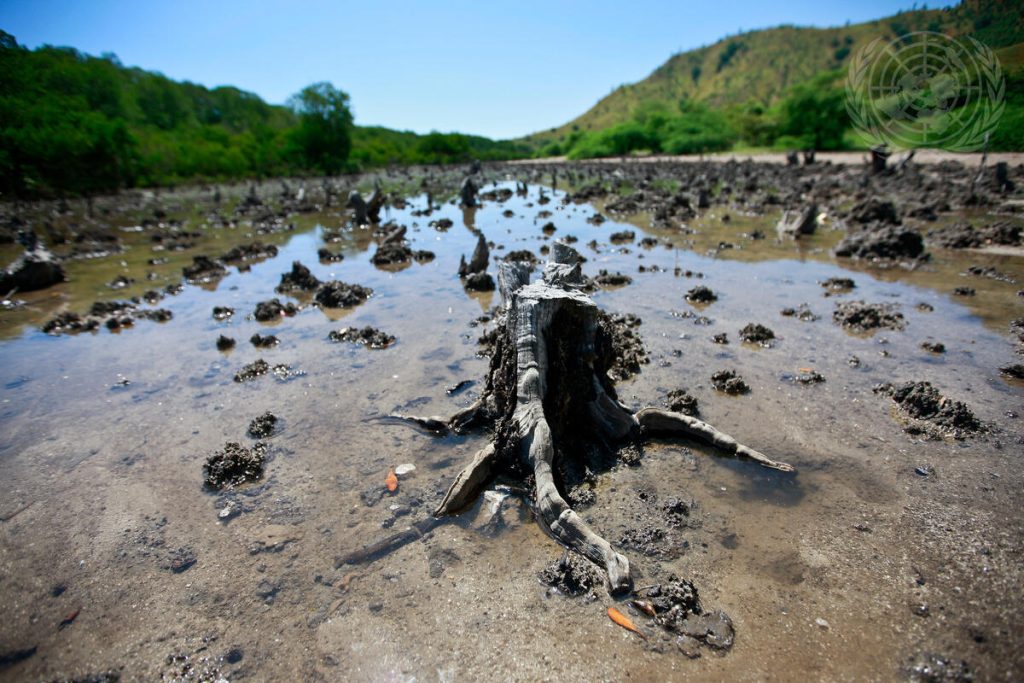The Impact of Climate Change on Nigeria's Food Security
Nigeria is currently facing a severe and expanding dual crisis driven by climate change and persistent insecurity, profoundly impacting crop production and national food security, according to a new report by SB Morgen (SBM) Intelligence.
The report, titled “Nigeria’s Food Security Under Siege: Climate Change, Conflict, and the Collapse of Agricultural Resilience,” highlights the devastating personal impact on millions of Nigerians and warns of serious repercussions for West and Central Africa if immediate action is not taken.
The analysis, which collated data up to March 28, 2025, reveals that a combination of extreme floods and accelerating desertification, alongside escalating farmer-herder conflicts, widespread banditry, and rampant kidnapping, has led to a dramatic decline in agricultural output.
This has contributed significantly to alarming food price inflation and a drastic increase in food-insecure Nigerians, with figures reaching 100 million in the first quarter of 2024.
The climate crisis is fundamentally altering Nigeria’s environmental landscape, directly impinging upon agricultural productivity.
SBM Intelligence notes that between August and September 2024, Borno State experienced widespread flooding exacerbated by the collapse of the Alau Dam, causing extensive damage to infrastructure and displacement.
This environmental devastation extends nationwide; since July 2024, 31 of Nigeria’s 36 states have been inundated by floods, affecting approximately 1.2 million people and destroying an estimated 180,000 cultivated farmlands.
Furthermore, Nigeria’s northern regions face escalating challenges from desertification, with over 350,000 hectares of arable land lost yearly. These climatic shifts disrupt agricultural productivity, reducing crop yields and intensifying food insecurity and malnutrition.
The report emphasises that climate change acts as a “threat multiplier,” transforming environmental hazards into complex humanitarian crises by exacerbating existing issues like insurgency and human displacement.
Alongside environmental pressures, various forms of insecurity directly undermine Nigeria’s food systems.

Credit: UN Photos
The report highlights insurgent attacks in the Northeast, widespread ‘banditry’ in the Northwest, and an escalating farmer-pastoralist conflict in the Middle Belt that has alarmingly spread southward. This conflict has transformed from localised grazing disputes into violent clashes involving sophisticated weaponry, with civilian non-state actors estimated to possess approximately 6,145,000 small arms nationwide, a stark contrast to the state’s combined arsenal of about 586,600 firearms.
The regional impacts are widespread: the Northcentral “food basket” region (Benue, Plateau, Nasarawa) is the epicentre of the pastoral conflict, with Benue enduring over 200 documented attacks and Plateau recording around 150 incidents between 2019 and 2025, and in Nasarawa State, a 1% increase in human insecurity correlates to a 17% decline in agricultural activities; mass killings, such as the December 2023 Bokkos massacre (140 lives lost) and January 2025 attacks in Mangu (30 killed), directly devastated farming communities.
In the Northwest (Kaduna, Zamfara, Katsina, Sokoto), banditry and kidnappings severely disrupt farming, with bandit attacks displacing nearly 700,000 people in Zamfara.
The Northeast (Borno, Adamawa, Yobe) continues to face insurgent attacks disrupting livelihoods, exacerbated by USAID funding freezes in early 2025.
Alarmingly, the pastoral conflict has spread to Southern States (Edo, Ondo, Enugu, Oyo, Delta, and Bayelsa), with armed militias attacking Akure North LGA in Ondo State in February 2025, resulting in 20 farmer deaths, and in March 2025, over 1,000 women in Enugu State protested persistent herdsmen attacks, reporting sexual violence and widespread insecurity.
This pervasive insecurity has led to staggering human displacement, with over 2.2 million people displaced nationwide, including 1.3 million in the Northcentral and Northwest regions by April 2024, directly reducing agricultural output in some of the country’s richest farming areas.
These intertwined crises have led to an increasingly precarious food security situation. Food inflation surged to 35.41% in January 2024, contributing to a drastic increase in food-insecure Nigerians, from 66.2 million in the first quarter of 2023 to an alarming 100 million in the first quarter of 2024.
As of March 2024, 18.6 million Nigerians faced acute hunger. The plummeting agricultural output in the Middle Belt directly exacerbates this inflation, while disruptions to food production and supply chains contribute to increased malnutrition rates.
The Nigerian government has introduced various measures, including the National Livestock Transformation Plan (NLTP) and anti-open grazing laws, with 17 states passing such laws and 12 actively enforcing themas of March 2025.
Military interventions like Exercise ANigeria Launches Ruga Settlement in Plateau to Boost Livestock Industryyem Akpatuma and Operation Whirl Stroke have also been deployed. However, these efforts have largely been inadequate. The NLTP remains poorly implemented, and anti-open grazing laws face significant enforcement challenges and political resistance.
A major criticism is the consistent failure to prosecute perpetrators of violence, which emboldens armed groups and perpetuates impunity. Deep-seated mistrust and the politicisation of the conflict along ethnic and religious lines further complicate resolution.
The government’s approach is often reactive, relying on temporary military interventions rather than proactive, holistic strategies addressing root causes like climate change adaptation and land tenure reform.
The report concludes that Nigeria is grappling with a severe and expanding dual crisis that fundamentally undermines food security. To avert further national instability, a coordinated, multi-faceted approach is urgently required.
Strategic recommendations include implementing and scaling up climate-smart agriculture programmes, focusing on drought-resistant and early-maturing crop varieties, and significantly investing in irrigation infrastructure. The pervasive failure to prosecute perpetrators indicates a deeper systemic breakdown that requires more than piecemeal solutions, emphasising the urgent need for integrated interventions addressing both environmental vulnerabilities and human-induced threats.









